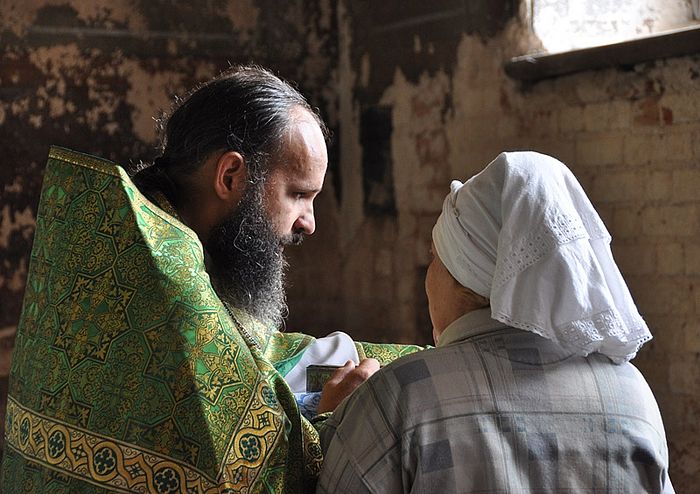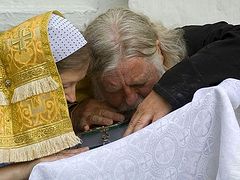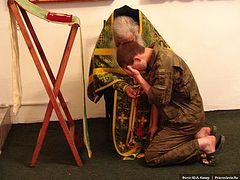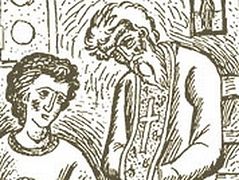Many wonder what it is they should confess when they come to the sacrament of repentance. Some are not clear about the difference between a sin and a mistake, or between sin and bad judgment. The monk Evagrius Ponticus writing in the 4th Century gives us some clarification. Many “warped” thoughts can run through our minds, some of them disgusting, some persistent and pernicious, some of them tempting. Evagrius notes that we don’t always have control over what thoughts enter into our heads, or how we react to various stimuli from the world around us. What we have control over is how we deal with those thoughts. It is only the things that we can control that can actually turn into sin. When we know something is wrong and do it, we are committing sin. Thoughts and feelings in and of themselves are not necessarily sinful even though we might recognize them as being bad. We may have no control over them. Our control begins with what we decide to do about the thoughts or feelings that enter into our minds.
Whether or not all these thoughts disturb the soul does not depend upon us. However, whether they linger or do not linger, arouse our passions or not, that depends on us. What turns these “thoughts” into passions and then into sins is the voluntary consent of the human being, who gives way to evil within himself. Temptation in a monk is a thought that arises through the passionate part of the soul (that is, anger and desire) and darkens the intellect. A sin for a monk is the [free] consent [of the will] to the forbidden pleasure of the thought. . .
In order to prevent consent we need the virtues, and, to be precise, above all we need these two, which keep a tight rein on the passionate part of the soul: love as a bridle for anger, and self-control as a rein on desire. If both of these rule in the soul, the sensory impressions will not trigger the passions. (Gabriel Bunge, Despondency: The Spiritual Teaching of Evagrius Ponticus on Acedia, Kindle Loc. 748-58, 765-68)
In confession we admit to those things we chose to do which we know are wrong, even if we feel we had little choice but to act in a particular way in a given situation. Sin lies in knowing that one is doing is wrong or evil, but doing it anyway. The cure for the soul, what we need to cultivate as a result of going to confession, according to Evagrius is love and self-control. Fasting, self-denial, asceticism can be a way to learn self-control. But that is not enough to follow Christ. To be a Christian is to learn and study the Lord Jesus Christ’s love for us, and then to imitate Him.
“A new commandment I give to you, that you love one another; even as I have loved you, that you also love one another. By this all men will know that you are my disciples, if you have love for one another.” (John 13:34-35)







How? How do you study and learn Christ's love? Surely love is experience. We can be ''nice'' and ''kind'' and ''polite'' and think we have ''love'' but instead have self gratifying egotism. We can quote from scriptures like the all holy one of Constantinople does ''wouldn't it be good for all the brethren to dwell in harmony'' and think we have ''love'', but instead blaspheme God through heresy and lies. Love is an experience, and an experience in Truth that you cannot learn. Otherwise it is meaningless godless hypocrisy.